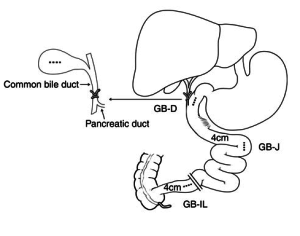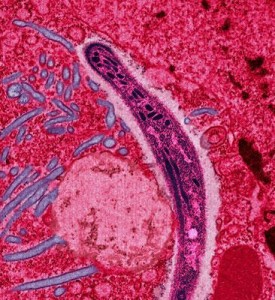
Diabetes drug sheds light on Parkinson’s disease treatment
New research suggests that glitazone (GTZ) antidiabetic drugs could provide insights into treating Parkinson’s disease. Building on recent animal studies identifying neuroprotective effects of GTZ, the authors analyzed data from UK electronic health records and identified almost 45,000 diabetic patients prescribed the drugs.
When compared with age- and disease-matched controls, fewer people developed Parkinson’s disease in the GTZ group. However, this association was not seen after patients taking GTZ switched to another type of diabetes drug.
Our findings provide unique evidence that we hope will drive further investigation into potential drug treatments for Parkinson’s disease
Ian Douglas
The authors caution that GTZ drugs can have serious side effects, and should not be used in patients without diabetes, but suggest that signaling pathways targeted by GTZ should be investigated as potential drug targets for Parkinson’s disease. Lead researcher Ian Douglas from the London School of Hygiene and Tropical Medicine said that:
“Our findings provide unique evidence that we hope will drive further investigation into potential drug treatments for Parkinson’s disease.”
Can bile diversion help weight loss?
Weight-loss surgery with operations such as gastric bypass and gastrectomy can be a successful method to achieve weight reduction in those with extreme obesity. Now, a study in rodents provides evidence that bile diversion to the distal small intestine may provide beneficial metabolic improvements similar to those achieved with gastric bypass surgery.

Using a mouse model of diet-induced obesity, the researchers diverted bile flow so that it entered the small intestine via the jejunum or ileum instead of the duodenum.They found that diversion to the ileum led to sustained weight loss and improvements in glucose tolerance.
If these findings are validated in humans, biliary diversion could provide an alternative to gastric bypass surgery for weight loss in obese patients.
Flynn et al., Nature Communications
Nucleostemin: a new prognostic biomarker for CRC?
Mounting evidence suggests that nucleostemin (NS), a protein found in the nucleolus of stem cells, is overexpressed in some types of cancer. To better understand the involvement of this protein in colorectal cancer (CRC) pathogenesis, researchers from China investigated its expression in 372 CRC patients.
High NS expression was found to be associated with metastasis, and those with low levels of NS had significantly longer survival time. Additionally, inhibition of NS expression in colon cancer cell lines led to reduced proliferation.
Together, these findings suggest that NS merits further investigation as a prognostic biomarker and possible therapeutic target in CRC.
Zhong et al., OncoTargets and Therapy
Prescribing patterns and antibiotic resistance
Antibiotic resistance is a growing global problem, and occurs mainly due to their misuse. Appropriate prescribing of antibiotics is therefore important to reduce the spread of resistance.
To better understand antibiotic prescribing patterns among primary care physicians in Sweden, researchers have compared prescription data for respiratory tract infections from trainees, general practitioners (GPs) with different levels of experience, and locums. They found that primary care doctors largely follow prescribing guidelines when treating children with respiratory tract infections, but less so when treating adults.
The authors found that older GPs and locums were more likely to differ from guideline recommendations compared with the other groups. The results of this analysis highlight where antibiotic prescribing could be improved to help overcome the development of resistance.
Towards a vaccine for P. vivax malaria
While malaria vaccine development has largely focused on Plasmodium falciparum malaria, increasing awareness of the importance of P. vivax as a cause of severe disease has inspired efforts to develop a vaccine against vivax malaria.

Now, a collaborative group from the UK, India, Singapore and Thailand report the preclinical development of P. vivax malaria vaccine candidates. The candidates target the P. vivax Duffy-binding protein region II (PvDBP_RII), which is essential for red blood cell invasion during malaria infection.
The vaccine candidates produced antibody responses in mouse and rabbit models, confirming that vaccines targeting PvDBP_RII are promising agents against P. vivax malaria, and merit further investigation in early phase clinical trials.
Comments